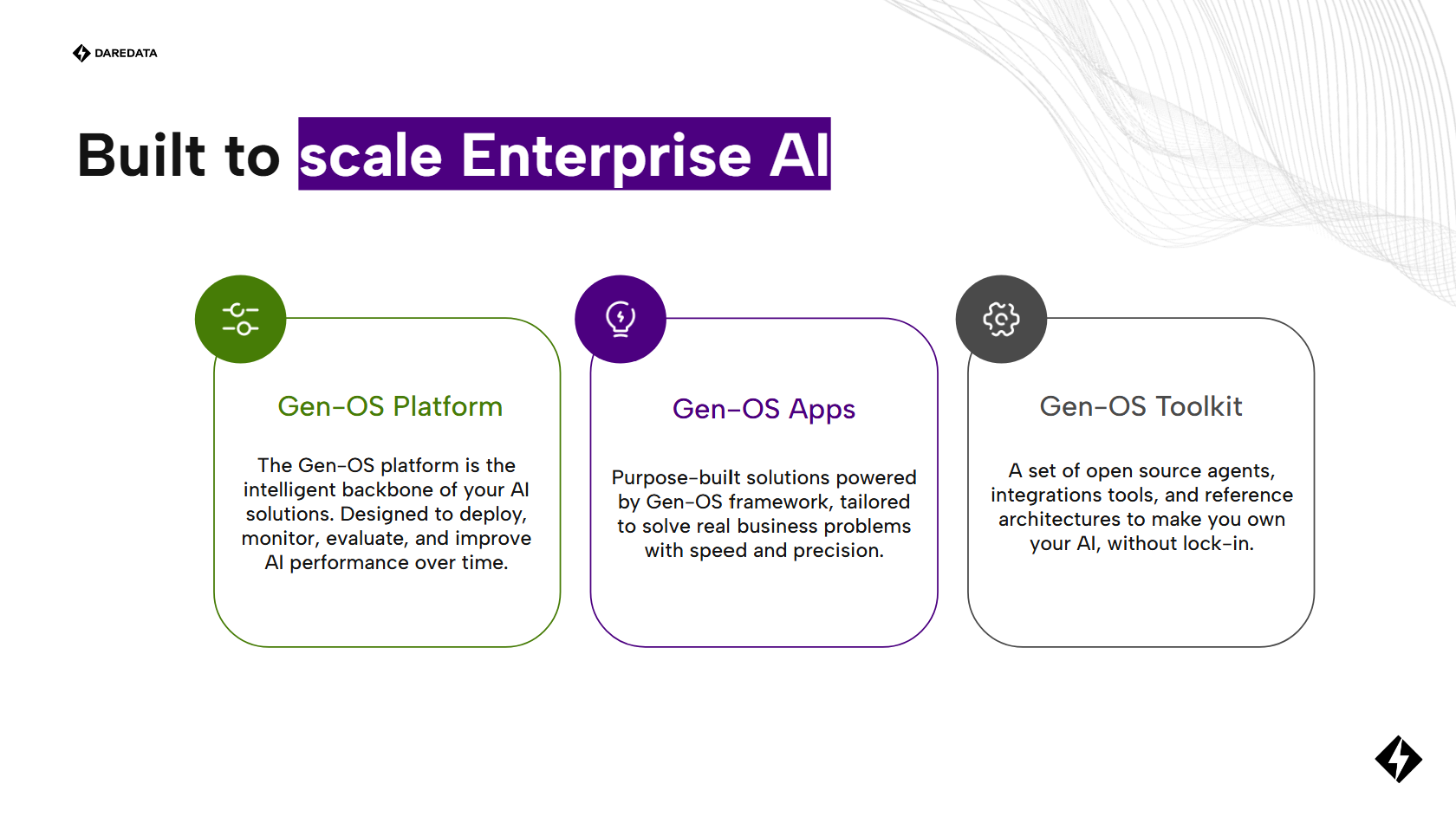By now, we should be seeing AI transitioning from experimental pilots to a key enabler of business transformation. The technology exists, and executive backing is in place, yet most AI projects never progress beyond the proof-of-concept stage.
There are multiple reasons but one stands out: successful AI at scale is less about clever algorithms, and more about having the right systems, workflows, and architecture.
Enterprise systems are messy, complex and have way less structure than what majority of people think. Large companies and incumbents have traditionally focused on serving customers and meeting operational priorities. As a result, IT systems were often treated as back-office enablers, with governance centered on ensuring the right data for operations, not for analytics or competitive advantage. And this happened during decades.
So in the new AI-first world, is there a way for these companies to gain a competitive edge? Absolutely. But it requires a shift in mindset, from viewing AI as a one-off experiment to embedding it as a capability across the organization. With the right frameworks, platforms, and data practices in place, even the most traditional enterprises can move beyond pilots and start delivering real impact.
In this post, we’ll share the practical framework we've been delivering to customers to help scale their AI projects.
1. Start with Business Impact, Not POCs
AI is a means to an end, not the end itself.
Before writing a single line of code, there are two things you need to do:
- define the business outcome you want to improve. Are you trying to reduce churn? Improve support response times? Automate repetitive back-office processes?
- But that's not all - after identifying the high-impact use cases, prioritize those where data is available and measurable outcomes exist.
When you combine this business impact analysis + technology, you get what we call a Gen-OS App. The Apps are blocks available in our Gen-OS platform that achieve one (or more) concrete business results:

Let's jump to concrete examples:
- a GenAI Chatbot that achieves 4.7/5 customer satisfaction with 73% of customer support automated with no-human intervention. Our customer saved 400k€+ throughout the year.
- Voice Intent Detection Bot to sort our the simple customer support issues, handling 25+ use cases inside the company.
- A Voice Assistant that automates call resolution using voice recognition and LLMs with 62%+ automatic resolution and 97% answer accuracy.
- An AI Co-Pilot for Support Agents that accelerates information retrieval, helping agents respond faster. This led to a 15–20% reduction in customer resolution time.
- An Automated Legal Workflow: Automates legal workflows from document to insight with 90% accuracy and saved 60k€ to one of our customers in just 2 weeks.
Stay in control, without compromising on value. You define the business problem. We provide secure, cost-effective AI apps designed to scale safely in production and provide imense savings in cost or time.
2. Deploy on a Reliable AI Platform
The real complexity of AI comes after the model is built. You need a platform that allows you to deploy, monitor, help, and improve AI systems. That’s what Gen-OS Platform was built for. Gen-OS enables you to:
- Monitor any AI (or group of AIs) on your App.

- Support the AI system with Human-in-the-loop mechanisms, that activate whenever an AI interaction is suspected to be incorrect.

- And finally, improve: Identify where performance drops, uncover blind spots, track unresolved issues, and understand exactly how far you are from your outcomes.

3. Avoid Vendor Lock-In with Open Tooling
A common trap in enterprise AI is getting locked into proprietary tools or too many vertical tools with no integration.
Gen-OS Toolkit is open by design, giving you the flexibility to plug into your existing infrastructure without relinquishing control.
🔓 Best Practice: Our toolkit favors open source-based tools, standard connectors, and reference architectures.
Also, Gen-OS aims to help you work with the systems you already use: CRMs, ERPs, support platforms, and internal APIs. If it doesn’t integrate, it won’t scale.
Our toolkit, apps and plataform are designed with interoperability and security from the start.
🔌 Gen-OS connects to your enterprise systems through a robust data and embedding layer, with built-in security and integration tools.
Final Thoughts
Scaling AI in the enterprise is not about building a better AI model or setting up dozens of AI tools. It’s about building the right system to scale and for low friction.
If you' want to improve your customer support or automate sales workflows, following a structured framework and using tools like Gen-OS will help your organization scale AI with confidence, performance, and control.
Contact me for a tailored walkthrough or to learn more about the Gen-OS Platform.
Ready to scale AI in your enterprise?

